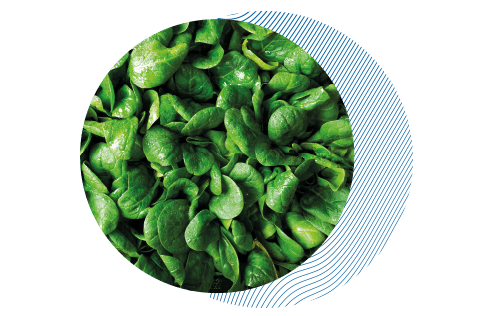Phytocontrol supports you in the detection of radioactivity in all foodstuffs.
The control of natural and artificial radionuclides is used to assess the risk of contamination in food and beverages.
As a result of nuclear tests and accidents at nuclear power plants (Chernobyl, Fukushima), quantities of radioactive elements have been released into the atmosphere. The European authorities have therefore taken regulatory measures to cover the risk of radioactive contamination.
Legislation requires control of the radioactivity of food and environmental elements.
Maximum permitted levels of radioactive contamination of food and feed that may be placed on the market following a nuclear accident or any other case of radiological emergency that is likely to result or has resulted in significant radioactive contamination of food and feed have been established in the following :

- EC Regulation No 1048/2009 amending EC Regulation No 733/2008 (Chernobyl)
- Implementing Regulation (EU) 2017/2058 amending Implementing Regulation (EU) No 2016/6 (Fukushima)
In this regulatory and food safety control context, Phytocontrol offers you to check the radioactivity in your products, for the following elements:
- Cesium 134
- Cesium 137
- Iodine 313
- Plutonium 238
- Plutonium 239
- Strontium 90
- Americium 241
Learn more about Cesium
Cesium is the most studied element in radioecology. Cs134 and Cs137, two artificial radionuclides, are most commonly detected in the marine and terrestrial environment. We can find significant contamination in mushrooms, essential oils, algae, bivalve molluscs...
According to Regulation (EC) No 1048/2009 amending Regulation (EC) No 733/2008 on the conditions for imports of agricultural products originating in third countries following the accident at the Chernobyl nuclear power plant, the maximum cumulative radioactivity of Cs134 and Cs137 must not exceed 600 Bq/kg.
According to Commission Implementing Regulation (EU) 2017/2058 of 10 November 2017 imposing special conditions on the import of food and feed originating in or consigned from Japan following the accident at the Fukushima nuclear power plant and amending Implementing Regulation (EU) No 2016/6, the content for the sum of Cesium 134 and Cesium 137 must not exceed :
- 50Bq/kg for Food for infants and young children
- 50Bq/kg for Milk and Milk-based Beverages
- 10Bq/kg for mineral waters and similar beverages; Tea obtained by infusion of unfermented leaves
- 500Bq/kg for dried tea leaves.
- 100Bq/kg for other foodstuffs.
For dehydrated products intended for consumption in reconstituted form, the maximum limit shall apply to the reconstituted product ready for consumption.
For mushrooms, a reconstitution factor of 5 is applied.
Why choose Phytocontrol
Phytocontrol is a technological and human project that meets the societal challenges of water and food safety with proximity, expertise, reactivity and reliability. The Laboratory provides you with the most reliable, innovative and eco-responsible solutions to guarantee you the best European expertise. A step ahead in technology, Phytocontrol develops its own Information System via a latest-generation Datacenter and innovates with its own system for tracking the sample's progress. Anticipation is Phytocontrol's credo and it is its intention to stay ahead!

